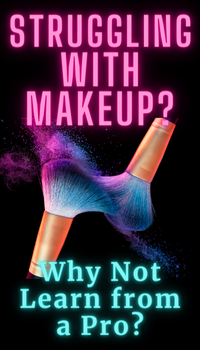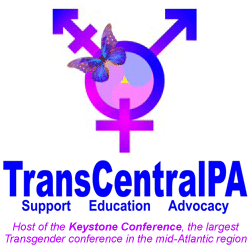The Great And Terrible Riz — Our New Blogger Takes On Social Capitalism

Hi, I’m Riz. This is my blog/column/whatever you want. And today we’re talking about social capital… what it is, why you want it, and why it’s important to our success as a community.
I’ve been reading a lot about a thing called “social capital” lately. Like so many things, once you know what it is, you see it everywhere. Trust me, after you read this, you’ll notice it too.
So what is “social capital”? Basically, it’s a fancy name for a concept that most of us take for granted: That knowing people is a good thing. Actually, social capital is only part of that–it’s the “good thing” that comes from knowing people, the reward you earn for taking the time to build a relationship (or a collection of relationships, sometimes referred to in the vernacular of social capitalists as a social network). For instance, say you’ve invested time and energy socially networking with the people who live around you; some of the social capital provided might include a neighborhood watch program, a neighbor boy who mows your lawn in the summer and rakes your leaves in the autumn, and–a real life example of my own–fresh veggies from the neighbor lady’s garden. Other examples abound.
What kinds of social networks are there? All kinds. Everyone has at least a few. Your close friends are one. Your family is another. Your co-workers yet another. The example above posits neighbors as a social network, although this is increasingly a thing of the past. Some people have kinds of networks too. I have my trans-friends, which are distinct from my other friends, and my gamer-friends, who are distinct from both. And certainly there is some overlap–I have friends who are both friends and co-workers, for instance. Quite often, though, different kinds of networks output different kinds of capital–a co-worker might help me get a promotion, but my mother probably could not–and that’s why it’s important to distinguish.
Notice I do not mention “being made to feel good about myself” when I talk about kinds of social capital. The proponents of social capital theory don’t discount the potential benefit of positive emotions; however, they don’t spend a great deal of time talking about them either. And neither will I. For one thing, they’re hard to measure. For another, their long term benefit is currently being disputed in other areas of social and psychological study, with some studies showing little to no correlation between happiness, self-esteem, and leading a “successful” life. At any rate, social capitalists claim that people with high yields of social capital do tend to be happier and live longer; I acknowledge that and would like to get past it right now, because later when we start talking about social capital in relation to the trans-community we could easily get bogged down in the “warm fuzzy feelings” engendered by our sisterly natures and be unable to focus on the real, tangible benefits (if, indeed, there are any) that knowing each other provides.
The above paragraph, and to some extent, the whole idea of social capital, can easily be cast in a cynical light. What I, and the social capitalists, almost seem to be recanting is the old chestnut, “it’s not what you know, but who.” Cynical indeed. If generations had mottos, that would have been mine. But that saying doesn’t have to read so negatively. We live in a society that, for good or bad, celebrates individual achievement. People like to think they can make it on their own, that they can thrive without the need for outside help. The theory for social capital tells us this isn’t possible. Even worse, it seems to be saying that you should take advantage of the people around you and that their value to you is directly proportional to what they can do for you. Both statements are untrue. Remember that although you may need social capital to achieve certain ends, everyone else does too, and you will be a part of that. What you know may not always benefit you, but it can certainly help others. And that while yes, we are (mostly*) benefiting from our relationships, this is okay, because it’s okay for us to help each other.
*I say “mostly” because like anything, some relationships and the resulting social capital can sometimes be bad. If you’re friends with the wrong person, they can use their social capital to leverage you into doing something you wouldn’t–and shouldn’t –normally do. But overwhelmingly, the advantages of having relationships far outweigh the disadvantages of having them, and the only other option would be to not have them at all.
The gist of social capital thinking is that over the past several decades, people have invested less time in developing social networks, and thus have less total social capital than prior generations. And this is generally regarded as a bad thing. Apart from the obvious problems with this phenomenon–increased isolation, increased cynicism, etc (which are really symptoms of the problem, rather than effects of it)–lack of social capital is (theoretically) linked to a variety of social maladies: rising unemployment, rising crime, etc. In a very generalized sense, in the same way that freely flowing financial capital (money) is the sign of a healthy economy, freely flowing social capital is the sign of a healthy society. And ours is about as unhealthy as it has ever been.**
**The peak of social capitalism–in the U.S., anyway–appears to have been in the ’50s and ’60s, whereas our current numbers are more in line with those of the ’20s and ’30s. So these things come and go, depending on cultural events of the time, the advent of new technologies, etc.
The broad view of social capital, though, does not really take into account the nature of minority interests and the groups that spring up around them. While the world at large might be increasingly isolated from itself, new technologies allow individuals–who in days gone by oftentimes had no peers with which to associate and were therefore bereft of social capital–to suddenly start building social networks and accumulating capital. Without a doubt, the trans-community has to be among the most affected in this regard.
Despite how learned the above paragraphs might seem, I don’t have the background (yet) to make any big assertions about social capital in the trans-community–how it helps or hinders us, and where it might be going. I have only anecdotal evidence to start with, and perhaps by sorting that out I can build towards a larger proclamation. But that’s for somewhere down the road. Next time I’m going to talk about the Internet, its relationship to social networking in the trans-community, and how different sub-groups within our community have different kinds of social capital.
Category: Transgender Opinion










